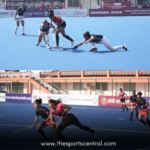In recent years, there has been a significant increase in the number of children participating in organized sports. Parents, driven by the desire to provide their children with the best opportunities for physical fitness, social development, and possibly even a future in professional sports, often start enrolling their kids in sports programs at a very young age. However, this trend has sparked a crucial debate: How early is too early to start youth sports training?
This article delves into the various factors that parents and coaches should consider when determining the right age for children to begin sports training. We will explore the physical, emotional, and cognitive aspects of early sports participation, as well as the potential benefits and risks associated with starting too young. By the end, we hope to provide a well-rounded perspective that can help parents make informed decisions about their child’s involvement in sports.
The Rise of Early Sports Specialization
Early sports specialization, where children focus intensely on a single sport from a young age, has become increasingly common. This trend is driven by the belief that early specialization can lead to greater success in a particular sport, potentially resulting in scholarships or professional opportunities. Parents and coaches often see early training as a way to give children a competitive edge.
However, this approach has sparked concerns among sports scientists, pediatricians, and psychologists. While early specialization might work for some sports that require a peak performance at a young age (such as gymnastics or figure skating), it may not be suitable for others and can come with significant risks, including burnout, overuse injuries, and hindered overall development.
Physical Development: The Right Time to Start
One of the most important factors in determining the appropriate age for youth sports training is physical development. Children develop at different rates, and their bodies go through various stages of growth, each with specific physical capabilities and limitations.
Motor Skill Development
Motor skills are the foundation of physical activity. Basic motor skills such as running, jumping, throwing, and catching are usually developed during early childhood (ages 3-5). At this stage, children benefit most from unstructured play that encourages them to explore different movements and activities. This is the time to introduce children to a variety of sports and physical activities in a fun and informal way, allowing them to develop their motor skills naturally.
Structured sports training can begin once a child demonstrates a certain level of coordination and motor skill proficiency, typically around the ages of 6 to 8. At this age, children are more capable of following instructions, understanding rules, and participating in organized games. However, it’s essential that training at this stage focuses on skill development and enjoyment rather than competition.
Growth Sports and Musculoskeletal Development
As children grow, their bones, muscles, and joints undergo significant changes, particularly during growth spurts. This period of rapid growth, typically occurring between the ages of 10 and 14, can make children more susceptible to injuries, especially if they are involved in intense sports training.
Coaches and parents should be aware of these growth phases and adjust training programs accordingly. It’s important to emphasize proper technique and injury prevention during this time, as well as to monitor the child’s physical health closely. Pushing children too hard during a growth spurt can lead to overuse injuries, which may have long-term consequences on their athletic development.
Cognitive and Emotional Readiness
Physical development is just one piece of the puzzle when determining the right age for sports training. Cognitive and emotional readiness are equally important and often overlooked factors.
Cognitive Understanding
Children’s cognitive abilities develop gradually, and their capacity to understand complex concepts, strategies, and rules in sports evolves with age. While younger children (ages 3-6) can grasp basic instructions and simple rules, they may struggle with the more complex aspects of sports, such as tactics, teamwork, and competition.
Around the age of 7 or 8, most children begin to develop a better understanding of game rules and strategies. They can start to appreciate the nuances of different sports, making this a suitable time to introduce more structured training. However, it’s crucial to ensure that the training remains age-appropriate, focusing on fun and learning rather than competition and pressure.
Emotional Maturity
Emotional maturity is another critical factor in determining when a child is ready for sports training. Younger children often lack the emotional resilience needed to cope with the pressures of organized sports. They may struggle with losing, criticism, or the demands of regular practice.
It’s important for parents and coaches to assess a child’s emotional readiness before starting formal sports training. A child who is not emotionally prepared may experience anxiety, stress, or a loss of interest in sports altogether. The goal should be to create a positive and supportive environment where the child can enjoy participating in sports without feeling overwhelmed.
The Risks of Starting Too Early
While there are benefits to early sports participation, there are also significant risks associated with starting too young, especially when it comes to early specialization. These risks include physical injuries, burnout, and a negative impact on overall development.
Overuse Injuries
Overuse injuries are one of the most common risks associated with early sports training. These injuries occur when repetitive stress is placed on the same muscle groups, tendons, and bones over time. In young athletes, whose bodies are still developing, overuse injuries can be particularly problematic.
Examples of overuse injuries include stress fractures, tendinitis, and growth plate injuries. These injuries are often the result of excessive training, lack of proper rest, and poor technique. To prevent overuse injuries, it’s important to ensure that children engage in a variety of physical activities, rather than specializing in a single sport too early. Cross-training, where children participate in different sports and activities, can help reduce the risk of injury by promoting balanced muscle development and allowing for adequate rest.
Burnout and Loss of Interest
Burnout is another significant risk of early sports specialization. When children are pushed too hard or forced to focus on a single sport from a young age, they may begin to experience physical and mental exhaustion. This can lead to a loss of interest in the sport, decreased performance, and in some cases, complete withdrawal from physical activity.
Burnout can have long-term consequences on a child’s relationship with sports and physical fitness. It’s important for parents and coaches to recognize the signs of burnout, which may include a lack of enthusiasm, irritability, frequent complaints of fatigue or pain, and a decline in performance. To prevent burnout, it’s crucial to prioritize fun and enjoyment in sports training, ensure that children have ample time for rest and recovery, and avoid placing undue pressure on young athletes.
Impact on Overall Development
Focusing on a single sport at a young age can also have a negative impact on a child’s overall development. Early specialization may limit opportunities for children to develop a wide range of motor skills, social skills, and cognitive abilities. It can also lead to an unbalanced lifestyle, where the child’s time and energy are disproportionately devoted to sports at the expense of other activities.
A well-rounded approach to physical activity, where children are encouraged to participate in a variety of sports and recreational activities, is more likely to promote healthy development. This approach allows children to explore their interests, develop diverse skills, and build a strong foundation for future athletic pursuits.
The Benefits of Starting at the Right Age
When children start sports training at the appropriate age, they can reap numerous benefits that contribute to their physical, mental, and social well-being.
Physical Fitness and Health
One of the most obvious benefits of sports training is improved physical fitness. Regular participation in sports helps children develop strength, endurance, flexibility, and coordination. It also promotes cardiovascular health, maintains a healthy weight, and reduces the risk of chronic diseases such as obesity and diabetes.
Starting sports training at the right age ensures that children develop healthy habits that can last a lifetime. It also reduces the risk of injuries and ensures that physical activity is a positive and enjoyable experience.
Social Skills and Teamwork
Sports provide an excellent platform for children to develop social skills and learn the value of teamwork. Through sports, children learn how to communicate effectively, cooperate with others, and resolve conflicts. These skills are essential for success in both sports and life.
Participating in team sports also helps children build friendships and develop a sense of belonging. The camaraderie and shared experiences of being part of a team can boost a child’s self-esteem and provide a sense of purpose.
Cognitive Development and Discipline
Sports training can also contribute to cognitive development by teaching children important life skills such as discipline, time management, and goal-setting. Children who participate in sports learn the importance of practice, perseverance, and hard work. They also develop problem-solving skills as they navigate the challenges and strategies of their chosen sport.
Moreover, sports can enhance a child’s focus and concentration, skills that are transferable to academic and other areas of life. The structure and routine of sports training can also help children develop a sense of responsibility and accountability.
Guidelines for Parents and Coaches
Given the potential risks and benefits, it’s essential for parents and coaches to approach youth sports training with careful consideration. Here are some guidelines to help determine the right age for children to start sports training and how to ensure a positive experience.
Focus on Fun and Development
For young children, the primary focus of sports participation should be fun and development, not competition. Encourage children to try different sports and activities to develop a broad range of motor skills and find what they enjoy. Emphasize the importance of play and exploration, and avoid putting pressure on children to specialize in a single sport too early.
Monitor Physical and Emotional Readiness
Before starting structured sports training, assess your child’s physical and emotional readiness. Look for signs that your child is capable of following instructions, understanding rules, and coping with the demands of organized sports. If your child shows interest in a particular sport, support them, but be mindful of their limits and needs.
Promote a Balanced Lifestyle
Ensure that your child maintains a balanced lifestyle that includes a variety of physical activities, academic pursuits, and leisure time. Avoid over-scheduling and allow time for rest and recovery. Encourage cross-training and participation in multiple sports to reduce the risk of overuse injuries and burnout.
Communicate and Set Realistic Expectations
Maintain open communication with your child about their sports experience. Listen to their concerns and be supportive of their goals. Set realistic expectations and avoid placing undue pressure on your child to perform or achieve specific outcomes. Remember that the goal of youth sports is to foster a lifelong love of physical activity and healthy living.
Finding the Right Balance
Youth sports training can offer numerous benefits, from physical fitness to social development, but it’s important to find the right balance and start at the appropriate age. While early sports participation can be positive, starting too young or specializing too early can lead to risks such as injuries, burnout, and hindered development.
By focusing on fun, development, and a well-rounded approach to physical activity, parents and coaches can help children enjoy the many benefits of sports while minimizing the potential drawbacks. The key is to ensure that sports training is tailored to the child’s individual needs, interests, and developmental stage, allowing them to grow into healthy, happy, and well-rounded individuals.
In the end, the question of how early is too early for youth sports training depends on the child. Every child is different, and there is no one-size-fits-all answer. What’s most important is that children are given the opportunity to explore, play, and develop at their own pace, with the support and guidance of caring adults who prioritize their well-being above all else










